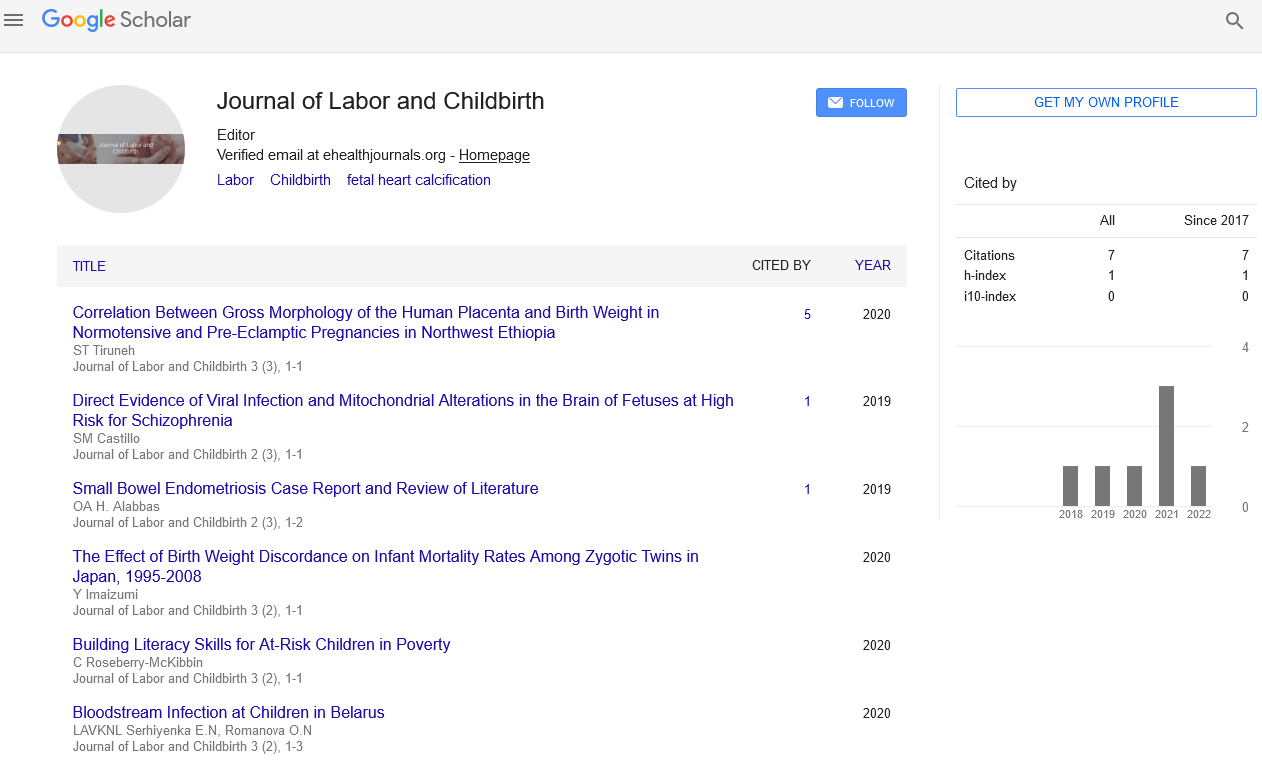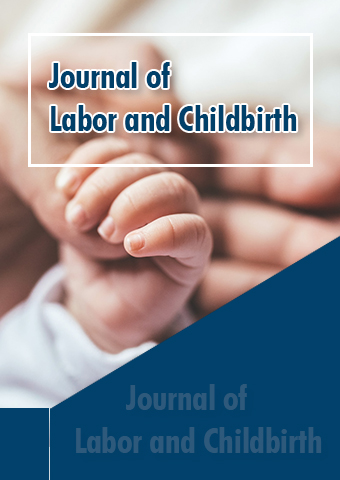Perspective - Journal of Labor and Childbirth (2024) Volume 7, Issue 5
Labor Support: A Crucial Element in Childbirth
- Corresponding Author:
- Leila Katz
Department of Child Welfare,
Bheem University,
Belem,
Brazil
E-mail: katzleilaa@gmail.com
Received: 28-Sep-2024, Manuscript No. jlcb-24-149114; Editor assigned: 03-Oct-2024, PreQC No. jlcb-24-149114 (PQ); Reviewed: 17- Oct-2024, QC No. jlcb-24-149114; Revised: 21-Oct-2024, Manuscript No. jlcb-24-149114 (R); Published: 28-Oct-2024, DOI: 10.37532/jlcb.2024.7(5).258-259
Introduction
Labor support, a term that encompasses the physical, emotional and informational assistance provided to a birthing person during childbirth, plays a critical role in the overall birth experience. The presence of supportive individuals, whether they are partners, family members, friends or professionals like doulas and midwives, has been shown to significantly impact the outcomes of labor and delivery. This article explores the various aspects of labor support, its benefits and the roles played by different individuals in ensuring a positive childbirth experience.
Description
The importance of labor support
Childbirth is a profound and transformative experience, yet it is also one that can be challenging and at times, overwhelming. During labor, a birthing person may experience intense physical sensations, emotional fluctuations and a range of psychological challenges. Labor support provides a crucial buffer against these challenges, helping to create a more positive and empowering birth experience.
Studies have consistently shown that continuous labor support can lead to better outcomes for both the mother and the baby. According to research published in the Cochrane Database of Systematic Reviews, women who receive continuous support during labor are more likely to have shorter labor durations, reduced need for pain relief, lower rates of interventions such as cesarean sections and forceps deliveries and greater satisfaction with their birth experience. These benefits highlight the importance of ensuring that every birthing person has access to effective labor support.
The role of the birth partner
The birth partner, often the birthing person’s spouse, partner or close friend, plays a central role in providing labor support. As someone who knows the birthing person well, the birth partner can offer personalized emotional and physical support. Their presence provides a sense of familiarity and comfort, which can help to reduce stress and anxiety.
In addition to offering direct support, the birth partner often serves as a liaison between the birthing person and the medical team. They can help to communicate the birthing person’s preferences and advocate on their behalf, ensuring that the birthing person feels heard and respected. The birth partner’s involvement in labor support not only strengthens the bond between the couple but also contributes to a more positive birth experience.
The role of Doulas
Doulas are trained professionals who specialize in providing continuous labor support. Unlike medical professionals, doulas do not perform clinical tasks or make decisions for the birthing person. Instead, their role is to offer nonjudgmental support throughout the childbirth process.
The presence of a doula has been associated with numerous positive outcomes, including shorter labor, reduced need for pain medication, lower rates of cesarean delivery and higher levels of maternal satisfaction. Doulas bring a wealth of knowledge and experience to the birth, helping to guide the birthing person through each stage of labor with confidence and ease.
Doulas also provide valuable support to the birth partner.
By offering guidance and reassurance, doulas help birth partners feel more confident in their role, enabling them to be more effective in supporting the birthing person. This collaborative approach ensures that the birthing person receives the most comprehensive support possible.
The role of healthcare professionals
Midwives, obstetricians and nurses also play a critical role in providing labor support. While their primary focus is on the clinical aspects of childbirth, many healthcare professionals recognize the importance of offering emotional and physical support as well.
Midwives, in particular, are known for their holistic approach to childbirth, which emphasizes the importance of continuous support. They often work closely with the birthing person and their family to create a supportive and empowering birth environment. Obstetricians and nurses, although primarily responsible for medical care, can also contribute to labor support by offering reassurance, explaining procedures and respecting the birthing person’s preferences.
The impact of labor support on birth outcomes
The presence of continuous labor support has been shown to have a significant impact on birth outcomes. Women who receive continuous support are more likely to have spontaneous vaginal deliveries and are less likely to require interventions such as epidurals, forceps or cesarean sections. This is likely due to the combination of emotional reassurance, physical comfort and advocacy that labor support provides.
Furthermore, labor support is associated with higher levels of maternal satisfaction. Women who feel supported during labor are more likely to view their birth experience positively, regardless of the specifics of the birth. This sense of satisfaction can have lasting effects, influencing the birthing person’s postpartum recovery and overall well-being.
Conclusion
Labor support is a fundamental aspect of childbirth that can significantly influence the experience and outcomes for the birthing person and their baby. Whether provided by a partner, doula or healthcare professional, effective labor support encompasses emotional, physical, informational and advocacy elements. By ensuring that every birthing person has access to continuous and compassionate support, we can help to create more positive, empowering and satisfying birth experiences for all.

